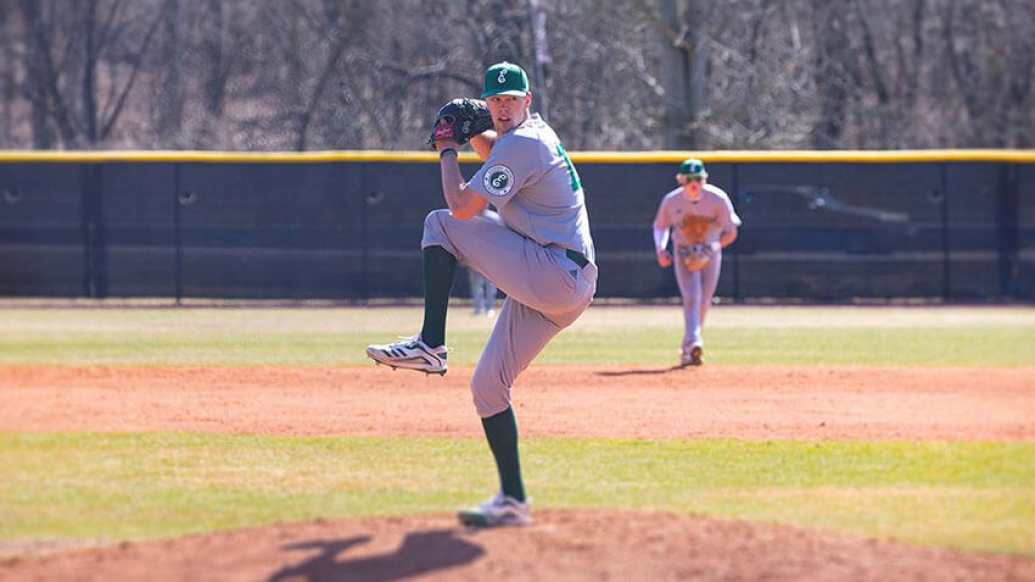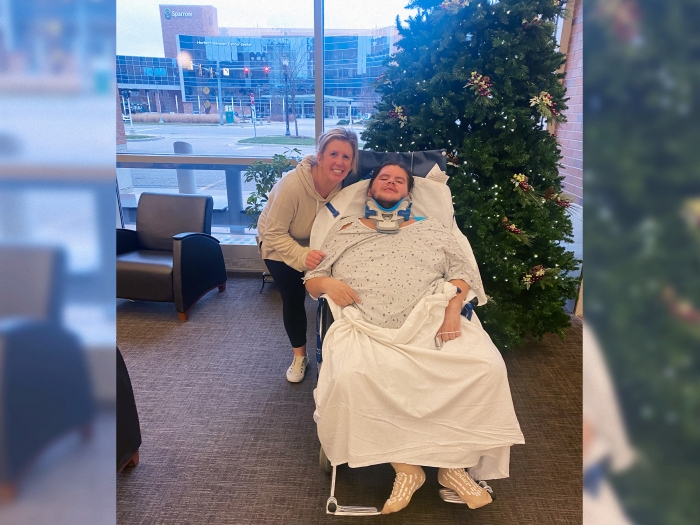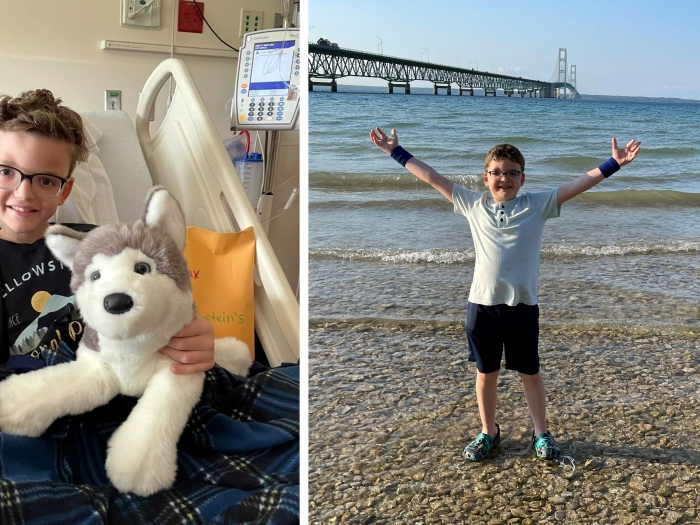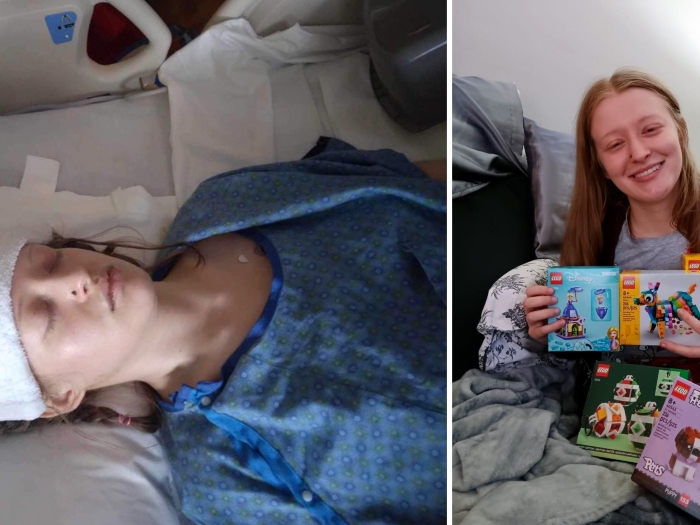Because of back pain, a Division 1 baseball player struggled with his sport and his classes. Here’s why he’s so glad he addressed it with outpatient spinal surgery.
5:00 AM
Author |

John Holt is making full use of his extra year of collegiate baseball eligibility.
The pitcher thought he'd have to close out his time at Eastern Michigan University with fewer innings than he wanted due to a brutal combination of relentless back pain and a pandemic-shortened senior season.
But even though he only appeared in three games after his minimally invasive spine surgery before COVID-19 canceled the rest of the 2020 season, Holt's teammates voted him the most improved teammate. Now, he's back on the mound for a fifth season.
"After the surgery my body felt 100% better," Holt says. "Six months later, I'm able to pitch at the level I could before, and I feel the best I've felt since high school. I love baseball so much, so it was definitely worth it."
'Radiating' pain
After hurting his back while lifting weights freshman year, Holt was dealing with pain that kept him awake at night. It was difficult for him to sit for long periods of time, and he couldn't bend down past his knees to pick up the baseball.
"I had radiating pain down my leg consistently, every single day," Holt says. "And being a pitcher, flexibility is huge."
By his sophomore year, he was losing out on playing time, and starting to worry about losing his academic eligibility, too. The pain made sitting in a tiny desk in a classroom for hours on end unappealing, and the entire situation was becoming incredibly frustrating.
"I was depressed a lot of the time because I couldn't play baseball, and I couldn't perform in the classroom either," he remembers.
I'm so excited to be back out there to perform and compete with my teammates.John Holt
Physical therapy and rehab had helped his range of motion a bit, but eventually he got some testing done. His MRI showed an area of wear and tear in his lower back that was causing pressure on the nerve going down his leg. It would need to be fixed if he wanted to perform at an elite level again.
"I was 21 years old and I didn't think back surgery was something I really wanted to pursue," he says. "The idea freaked me out."
Knowing he was eager to get back on the field as soon as possible, Holt's new providers at Michigan Medicine recommended a laminotomy. A routine and minimally invasive approach, it involves only small incisions to remove part of the bone that's pressing on nerves.
And Holt would be able to go home the same day, without the intense recovery that an open surgery requires. That sounded good to him: "They made me feel so comfortable about it."
MORE FROM MICHIGAN: Sign up for our weekly newsletter
"I resected the area to free up the nerve to address the pain," says Holt's neurosurgeon, Osama Kashlan, M.D., an assistant professor. "He went through the procedure like a champ and recovered faster than I would've expected."
Unfortunately, Holt didn't get a full chance to show what he could do when the pandemic hit early last spring.
Healthy again, but another shortened season
"My first year back healthy and able to perform was taken away; it was heartbreaking," Holt says. Having graduated, Holt is now continuing his academic career with a master's degree at EMU. He immediately took his coach's offer to return for another season because of the pandemic's effect on his senior year.
Holt credits his strong bench of support for his improved well-being today. "My family has always been there for me, and helped me get through everything."
And baseball has always been a family affair, starting with games of catch in the backyard when he was a kid, and trips to Detroit Tigers games.
His teammates became his on-campus family.
Like Podcasts? Add the Michigan Medicine News Break on iTunes or anywhere you listen to podcasts.
"My teammates, who are some of my best friends, encouraged me to stay with it. They knew I could play and wanted me to get better."
So they'd drag him to class even on his most uncomfortable days, making sure he'd be academically eligible to play once his back was better.
Holt has pitched in four games so far this season, including notching a career-high four strikeouts in two innings in his first appearance against Bellarmine.
"I'm so excited to be back out there to perform and compete with my teammates," Holt says.
"John persevered through a lot of discomfort and pain to do what he loves," Kashlan says. "He'll be successful wherever he ends up going in life."

Explore a variety of healthcare news & stories by visiting the Health Lab home page for more articles.

Department of Communication at Michigan Medicine
Want top health & research news weekly? Sign up for Health Lab’s newsletters today!





